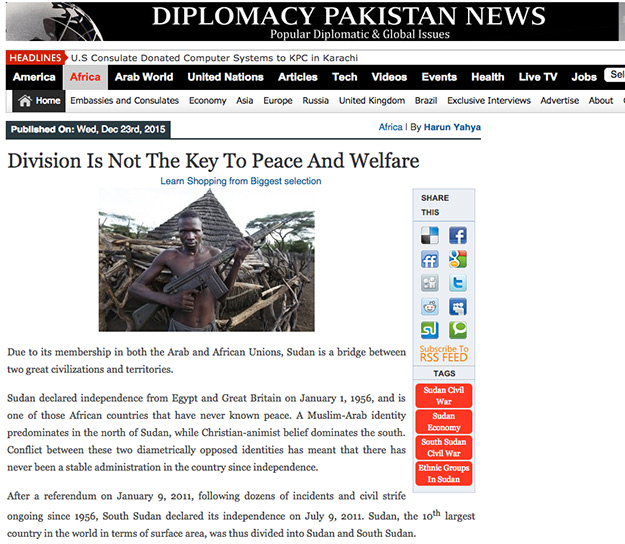
Due to its membership in both the Arab and African Unions, Sudan is a bridge between two great civilizations and territories.
Sudan declared independence from Egypt and Great Britain on January 1, 1956, and is one of those African countries that have never known peace. A Muslim-Arab identity predominates in the north of Sudan, while Christian-animist belief dominates the south. Conflict between these two diametrically opposed identities has meant that there has never been a stable administration in the country since independence.
After a referendum on January 9, 2011, following dozens of incidents and civil strife ongoing since 1956, South Sudan declared its independence on July 9, 2011. Sudan, the 10th largest country in the world in terms of surface area, was thus divided into Sudan and South Sudan.
Sudan’s position, oil reserves and fertile land make it one of the most strategically important countries in Africa. It takes excellent advantage of having a coastline by using its ports for regional trade.
The Sudanese economy enjoyed an era of rapid growth as of 2000 when its energy reserves entered the equation and oil exports began increasing. The economy grew by around 10% in 2006-2007, while GDP in 2011 stood at around $64 billion.
The division that took place in 2011 inflicted serious harm on the economies of both sides. The Sudanese economy, which had been growing consistently since 2000, began declining after that separation. GDP after separation in 2012 shrank by 8.7%.
Sudan and South Sudan are highly dependent on and in need of one another in terms of the use of their energy resources; although a significant part of the oil fields are in South Sudan, the pipelines, refineries and port facilities are in Sudan.
Oil exports represent some 60% of the Sudanese economy. Fifty percent of those exports go to China, 32% to Japan and the rest to South Korea and Indonesia. Income from oil constitutes 99% of all South Sudan’s national revenues.
Before independence, South Sudan, with its rich oil fields, provided 75% of the former Sudan’s oil reserves. Today, however, it needs Sudan to process and sell its oil.
The end for South Sudan began when it ceased oil production as a protest against Sudan in 2012. However, by ceasing production it placed its own economy, which was already in a bottleneck, in an even worse position.
South Sudanese territory is at least as productive agriculturally as it is in terms of oil fields yet it is still one of the poorest countries in the world. One example of South Sudan’s poverty and backwardness is that it has only 60 km of asphalt road.
Although South Sudan decided to secede in order to find peace, it has thus far never managed to establish peace or stability. This clearly illustrates that division is no way to bring about peace and stability, but in fact brings with it even more deeply-rooted problems.
Some 50 ethnic groups are still struggling for power and over their share of South Sudan’s oil. Some two million people have been forced from their homes due to violent incidents that began in late 2013, and some 300,000 have fled to neighboring countries. 120,000 people are still being housed in UN centers.
According to the latest report from the Food and Agriculture Organization of the United Nations (FAO), 3.9 million people are threatened by hunger, including 150,000 children. The report also says that 30,000 are in direct danger of starvation. That the people of a country such as South Sudan, with its rich oil reserves and fertile agricultural land, should be in danger of famine is indeed thought-provoking. This tragedy shows that once ideas such as division, separation, lovelessness and hatred take root in a society, then no matter how much natural wealth it may possess, disaster is inevitable for that country.
It is the ability to put oneself in another’s place that holds people together, enables them to deal with one another with mutual understanding and prevents them from falling out over minor problems.
Looking at the fighting among the tribes in South Sudan in particular, these conflicts are almost entirely based on intolerance, greed and tribalism. If there is no love in a society then it is inevitable that hatred, ruthlessness and enmity will soon overwhelm that society.
Looking at the history of nations, separation has always ended up working against the interests of all sides, while unity has always made them stronger. Examples of the benefits of unity include the unification of East and West Germany, and of course, the United States of America.
The division of Sudan into two parts has inflicted severe damage on both. What is now needed is for the two countries to once again unite, to be able to use their rich resources for their peoples and, most important of all, for them to be able to guarantee that both peoples can live together in peace and prosperity.
0 comments:
Post a Comment